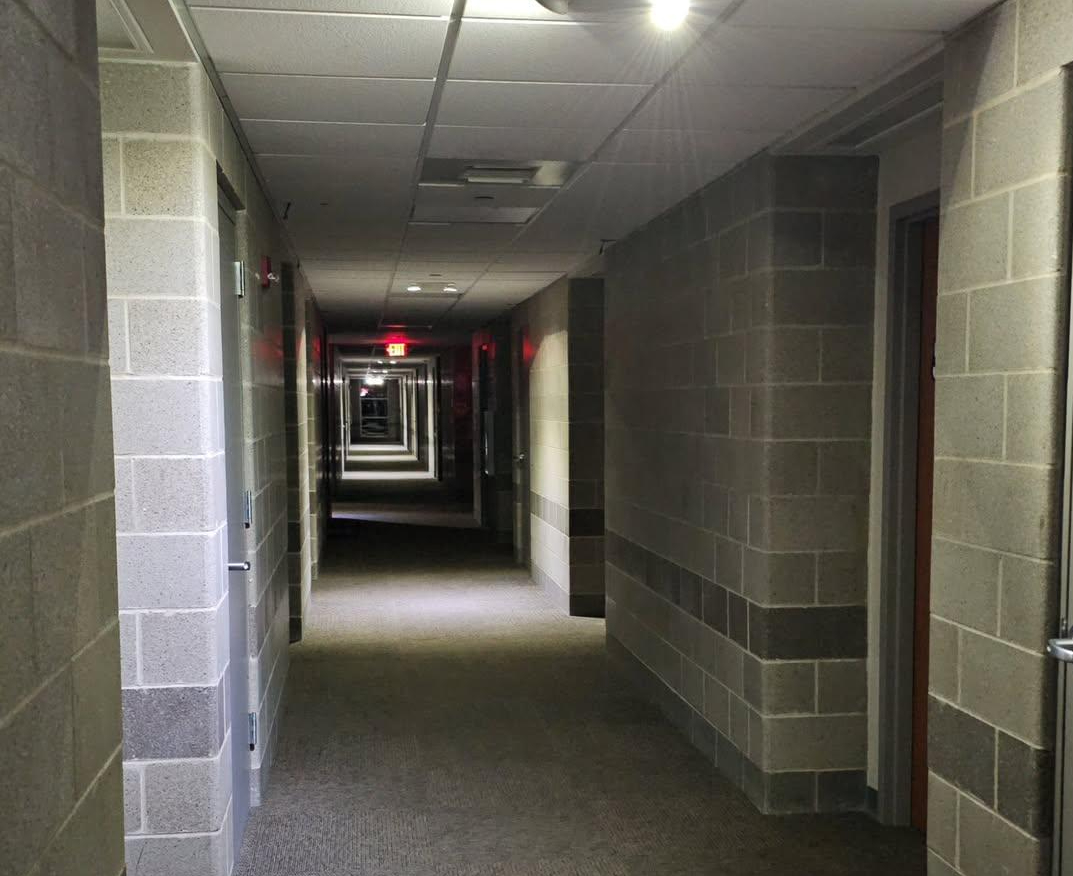J.T. BUCHHEIT | Chief Copy Editor
President Donald Trump’s proposed plan to build a wall across the United States-Mexico border is disappointing many Mexicans at Lindenwood and across the country.
Walls or natural terrain barriers already exist over much of the countries’ border. The Secure Fence Act of 2006 led to the construction of 653 miles of a wall, but Trump wants to add a wall to the rest of the navigable border.
Trump’s reasons for wanting to build the wall mainly comprise preventing illegal immigration and stopping drug-smuggling.
Students Estefania Alonso and Alex Legaria, who came from Mexico to Lindenwood in 2014, oppose the wall plan and believe it will cause more problems than solutions.
Legaria said the drugs will simply follow the law of supply and demand.
“Even if you stop one of your suppliers, it’s just going to create a niche that will be filled either by making the drugs from the U.S., or they’re going to come from other countries,” he said.
Jonathan Dunlop, president of Lindenwood’s College Republicans organization, said that claiming the wall would stop all drug trafficking is “absurd.”
“It would perhaps contribute to a modest reduction in the supply of opiates such as heroin,” Dunlop said. “Drugs domestically produced, such as meth, would remain largely unaffected.”
For immigration, Legaria said he sees a benefit to having workers come over from Mexico.
“Immigration-wise, it’s beneficial to have workers who are somehow able to be paid less, so I think creating a legal project for workers in Mexico, like temporary jobs, would be much more beneficial,” he said.
People have also mentioned the issue of Dreamers from Mexico. Dreamers are undocumented immigrants who came to the U.S. at a young age and have assimilated into U.S. culture. Legaria said forcing these people to go back to Mexico would be ridiculous.
“What can you expect from someone who has been in the U.S. since they were 8 years old?” Legaria said. “Going back to Mexico is like going to a new country. They’re Americans in their culture, so sending them back to me is crazy. It’s like making African-Americans go back to Africa.”
Legaria said the wall’s potential social impact is his biggest concern rather than how it might prevent Mexican immigration altogether.
“I don’t think the physical wall would actually have any physical impact of any international students, but what it represents, the mindset that it represents, that we’re separate cultures and separate people, and that Mexican people are bad and shouldn’t be allowed in,” he said. “So when people have children and they see, ‘Oh, we have a wall with Mexico,’ and then there’s this conflict and they don’t know what to think of us.”
For Alonso, the idea of the wall has shattered some of her thoughts about the U.S. she had before arriving.
“You grow up in Mexico thinking that the United States is this developed country with the best universities, that ignorance is not possible in this country,” she said. … “For me, as a Mexican, hearing about the wall is really disappointing. I think it’s ignorance toward people, because at the end, all of us are people who are just trying to make a better day of living.”
Alonso and Legaria mentioned American ignorance as something they have had to deal with. Alonso said many Americans’ geographical knowledge is lacking.
“You come here and you start knowing the culture and you listen to people and how much they know about global information, all the countries,” she said. “The knowledge they have here of other countries is really limited.”
Alonso and Legaria are both dissatisfied with the American stereotypes of Mexico and its people that has come about because of this ignorance.
“For us coming here representing Mexico, we are good people,” Alonso said. “Not everyone from Mexico is a drug dealer. Not everyone is a rapist. We’re good people who just want to come here to study or even to contribute to the United States economy or even society.”
Although Legaria is also disappointed with the wall idea, he said that with his current knowledge, he would still come to the U.S. if given the opportunity again. However, if he only knew what current Mexicans hear about the U.S., he would reconsider.
“If I only knew what people from Mexico right now know, they think, ‘Oh, they don’t like us, they think we’re just bad people,’ then I think it would be different,” Legaria said. “For us it’s either the United States or Europe. If you think the U.S. isn’t so great anymore, then you’d try Europe.”
Trump also said the Mexicans will pay for the wall, which Alonso said is impossible.
“We’re not going to pay for it,” she said. “We don’t even have the money to pay for it. So the idea of paying, that doesn’t exist.”
Trump’s plans on immigration may not have a large number of physical effects on the number of people who come to Lindenwood from Mexico, but for many Mexicans, it is a damaging blow to America’s reputation.









